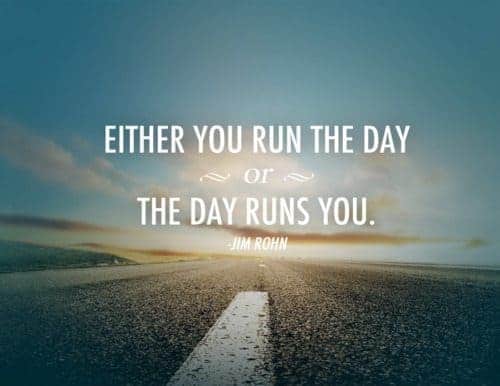How To Use Your Frustration To Expand Your Skill Set
Frustration often gets a bad rap. We view it as a sign that something is wrong—something to avoid, suppress, or escape.
But frustration is actually a messenger and a tool for growth. It points us toward the exact areas of our lives that require our attention and development.
As I recently shared on Instagram, “The version of you that has had enough is the version of you that will change everything. Frustration fuels your evolution.”
Let’s unpack that idea and explore how frustration can help us solve priceless problems.
Frustration Is a Signal, Not a Problem
When frustration strikes, it’s tempting to label it as a problem that needs to be fixed. But frustration is not the problem; it’s a symptom. It tells us that we don’t yet understand what’s happening or that we’re running out of patience to deal with the situation.
Take parenting, for example. Imagine you’re frustrated because your toddler is throwing food at the table. In that moment, frustration may seem like the enemy, especially if it triggers a response you later regret. But frustration is simply highlighting one of two things: a lack of understanding or a lack of patience.
If you pause and reflect, you can begin to explore the underlying cause. Is your toddler overwhelmed by the amount of food on their plate?
Are they exhausted from the day? Are they seeking attention? By investigating the root cause, you gain perspective, which leads to better strategies and greater patience. Education—understanding the behavior—becomes the key to growth.
Frustration Teaches Patience and Perspective
Frustration often arises when reality clashes with our expectations. In parenting, this might look like expecting a child to listen the first time or forgetting that toddlers sometimes act on impulse, regardless of how we explain things. This disconnect between expectation and reality creates frustration, but it also creates an opportunity.
For instance, you might need to adjust your expectations, realizing that children often require repetition and consistent boundaries. Or you might need to cultivate more patience than you initially thought possible. In this case, frustration becomes the catalyst for developing traits like empathy, understanding, and adaptability.
The same applies to other areas of life. If frustration shows up, ask yourself: What perspective am I missing? What skill am I being invited to develop?
Frustration can lead to Skill Development
Let’s shift gears and consider a career related example: growing your brand online. Building a personal brand can feel overwhelming.
Frustration might stem from feeling stuck, lacking consistency, or not having a clear process for creating and marketing. But instead of viewing that frustration as a sign to give up, what if you treated it as a guide?
For example, if you’re frustrated by your lack of consistency, you could dedicate focused time to developing habits around content creation. If you don’t have a process, you could invest in learning systems that make your workflow smoother.
The frustration itself highlights the exact skills you need to acquire to move forward.
By embracing frustration, you turn it into fuel for growth. You learn what works, what doesn’t, and how to refine your approach over time.
Your Destiny Is Evolution
We are all here to evolve—to expand, express, and grow. This isn’t just a personal belief; it’s reflected in the universe itself. The stars, the galaxies, the very nature of life—it’s all about evolution. And your life is no different.
Every challenge, every frustration, every setback is an invitation to evolve. It’s not about avoiding discomfort or eliminating chaos; it’s about outlasting it with minimal damage and maximum learning.
When we see frustration as an opportunity to gain an education, we unlock our potential. Education is the foundation for forward growth, whether that education is about parenting strategies, brand building tactics, or personal resilience.
The Power of Frustration
To harness the power of frustration, you need to shift your mindset from avoidance to interest. Here’s a simple exercise to get started:
- Reflect on the Last 30 Days
Identify one or two moments that frustrated you the most. What was the situation? How did you respond? - Pinpoint the Skill Gap
Instead of focusing on the frustration itself, ask: What specific skill would help me handle this better in the future? For example, do you need to learn better time management, communication techniques, or stress management? - Dedicate 15 Minutes a Day
Choose one skill and commit to developing it for just 15 minutes a day. Whether it’s reading a book, taking a course, or practicing mindfulness, small, consistent efforts compound over time.
By approaching frustration with curiosity and action, you turn it into a catalyst for growth. Remember, every frustration points to a skill, and every skill is an opportunity to evolve.
You’re The Teacher
Frustration isn’t the enemy, it’s a teacher. It highlights what we don’t yet understand and challenges us to develop the patience and skills we need to overcome life’s obstacles.
By leaning into frustration, you gain the tools to solve priceless problems, whether it’s navigating toddler tantrums, building a thriving brand, or evolving into your best self.
So, the next time frustration knocks on your door, don’t slam it shut. Invite it in, ask what it’s here to teach you, and let it guide you toward your next level of growth.











